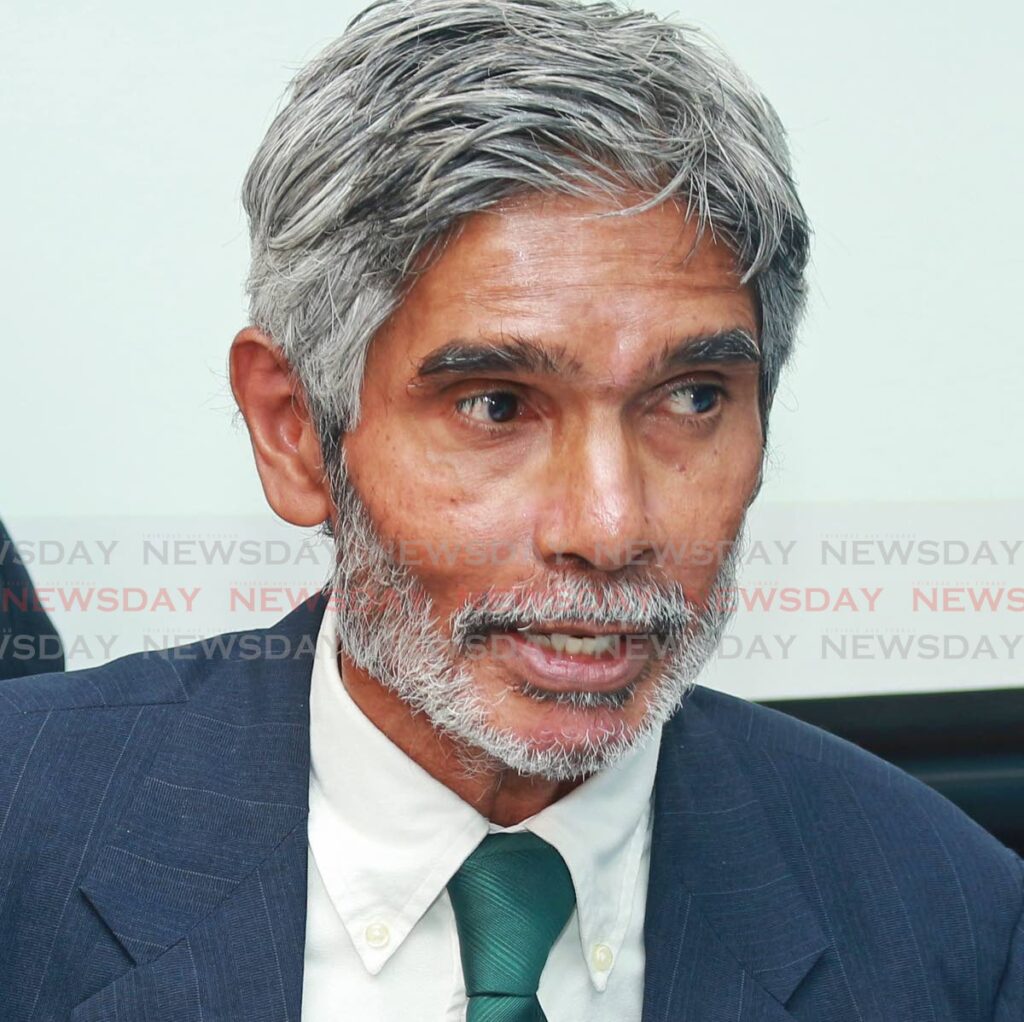Taking back the country

WAYNE KUBLALSINGH
IN 1991, dismayed by the body of lies being used to justify the invasion of Iraq, I left the British Territorial Army. A retired officer had come to the Oxford Officer Training Corps to sell the war to the young officers and recruits. He spoke of war in glorious terms, as if it were a grand Safari expedition.
I visited the commanding officer of the corps and told him that the Iraqis would be bombed like rabbits in their holes. It would not be a war; it would be a massacre. He was not upset. He was genial. He did not agree with my position, but he accepted my withdrawal from the corps.
At home in Trinidad, I visited Teteron and met with Lt Col Alphonso and Major John Sandy. I was hoping they would grab me up. I was fresh, enthusiastic, bearing a sergeant major mentality. But no such luck. There was a suggestion that I join the reserves: “Let us see what you have in you.” To see what I had in me, I had hoped they would search my record at the corps, at Sandhurst, where I had gained my lone officer’s pip. No such luck.
Even though I was told that I had to resign my commission with the British, which I did, and revisited Teteron, there was no enthusiasm for me. Relations petered out. That was that.
Ten years later, lecturing at UWI, I learnt that the assets of Caroni (1975) Ltd were being transferred to political party favourites at peppercorn, low rates. I went down to Sevilla House and met with the company PRO. I met with the trade union. I met with a female worker, a former senator, who was advocating non-closure. Basdeo Panday appeared to be silent on the matter. But the company was bleeding workers who opted for the closure plan.
I organised and hosted a symposium at UWI to determine how Caroni’s myriad and valuable assets could be levered to diversify the entire economy. This led to my writing, with the ideas of over 50 experts, the National Transformation Plan for TT. The Government, Minister Rahael, welcomed the report; then shelved it.
When the Government announced its plan to restructure Petrotrin, which eventually led to its being mothballed, I visited an expert in the industry. He had 40 years of experience in the State’s oil and gas sector. He said if Dr Rowley mothballed the company, he personally would shake his hands.
I next visited a very eminent manufacturing company. I held a meeting with its CEO and chief financial officer. I asked if they would be interested in assisting the OWTU, raising capital to run a reformed Petrotrin. No luck. They seemed pleased with what appeared to be the Government’s intentions.
And though I attended sessions at the Industrial Court, the High Court, marched, spoke out at a meeting, and asked the ever-generous OWTU, its leader, a lead officer, the leader of the political party affiliated with the union to meet, add my little capiche to their advocacy, no such luck. Eventually, the company was mothballed.
In 2015, the Highway Reroute Movement (HRM) held a meeting with Dr Keith Rowley, the then Opposition Leader. I sat next to Rowley, who seemed to be inching close to me under pressure from the HRM women. He assured us that first, though he held no effective power, he would raise the matter in Parliament. Second, that if he came to power and the Debe to Mon Desir highway had not materialised, he would stop it. He felt that our case was eminently logical.
After Rowley became Prime Minister, the members of the HRM coming up the highway to meet with him had to turn back. Rowley cancelled the prearranged meeting. He absolutely refused to respond to our numerous calls and letters to meet. His Minister of Works met with us and gave us the undertaking that no works would begin on the Debe to Mon Desir highway before consulting with us. He broke his promise, refused to meet, went ahead and signed contracts.
The court found in Wayne Kublalsingh vs the Minister of Works that he had indeed denied the HRM’s legitimate expectation, but contracts were already signed; a consideration to the contractors and their monies trumped our legitimate expectations. The matter is under appeal.
In August, I completed a 44-page manifesto, Manifesto 2025-2040 – A Promise To Fight. How does one pull a captured nation – captured by criminals high and low, by political leaders and their local corporate sponsors, by centralised Government in Port of Spain, and by metropolitan finance, trade, energy, guns, media – up by its own bootstraps to liberate itself? The ultimately answer is to take back TT.
Manifesto 2025-2040 knows where to go. For though it will offer itself to the partners of tripartism, the State, the corporation, the union, its ultimate address is the gates of the people. The people will not reject it. Among our people, I have never not been accepted. Never rejected.
We will shift the burden of power – through constituency government, criminal justice reform, skills-based education, digital connectivity, defeating traffic, diversifying energy, a horticultural and health revolution – from the backs of central government, their corporate and union sponsors, to the shoulders of the people.

Comments
"Taking back the country"